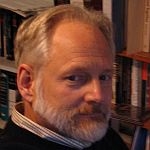 (Host) Commentator Vic Henningsen is a teacher and historian. A recent
(Host) Commentator Vic Henningsen is a teacher and historian. A recent
report on Americans in the military got him thinking about the relation
of service to citizenship.
(Henningsen) Recently, a survey from
the Pew Research Center revealed that fewer Americans serve in the Armed
Forces than at any time since the period between the two world wars.
During World War II, 9% of Americans were in uniform. During the last
decade that figure has been less than 1%.
Many historians note
that this is actually a return to normal. Only during the Cold War did
the U.S. develop and maintain a huge military establishment. For the
vast majority of our history, our navy and military were quite small:
expanding enormously in time of war, but quickly shrinking when the
crisis passed. That reflects a deeply-rooted distrust of standing
military establishments dating to the Quartering Act of 1765, when
colonists were required to house and feed British regulars dispatched to
"protect" America after the Seven Years War. Thomas Jefferson
considered standing armies second only to banks as the most dangerous
threat to American freedom. Samuel Adams said that standing armies were
"always dangerous to the Liberties of the People." "Soldiers" he noted,
"are apt to consider themselves as a Body distinct from the rest of the
Citizens".
And that’s precisely what’s worrisome about today’s
numbers. When the Pew Center noted potential dangers of a military less
connected to the rest of society, the possibility of an elite force
acting independently of the public interest was high on the list. That
is, after all, what brought down the Roman republic. Moreover, when the
vast majority of the public hasn’t served in the military or isn’t
related to someone who has, the possibility of poor decision-making
about going to war increases. The last decade’s combination of armed
services at war and an uninvolved public isn’t a good one.
It’s
ironic to note that this is the consequence of an anti-war movement. To
reduce public opposition to Vietnam, policymakers proposed ending the
draft in favor of an all-volunteer military, which finally happened in
1973. Although widely hailed at the time, the measure caused unease
among those who foresaw the problem we now face. They argued that the
best guarantees we have that the country won’t engage in reckless
military adventures are, first, that the draft ensured that the vast
majority of those in service actively didn’t want to be there and,
second, that the children of those leading the nation to war would be
forced to serve as well.
There’s a larger point here. While
participation in military service is down, participation in other kinds
of service is growing. According to the Bureau of Labor Statistics,
fully one in four Americans participates in some kind of community
service, putting aside personal interests to serve the common good.
Perhaps we should broaden our view and consider again the idea of
universal national service. After all, as Aristotle noted, citizenship
is not a set of rights but a set of duties that citizens owe the state.
We may get to choose how, but we all should serve.